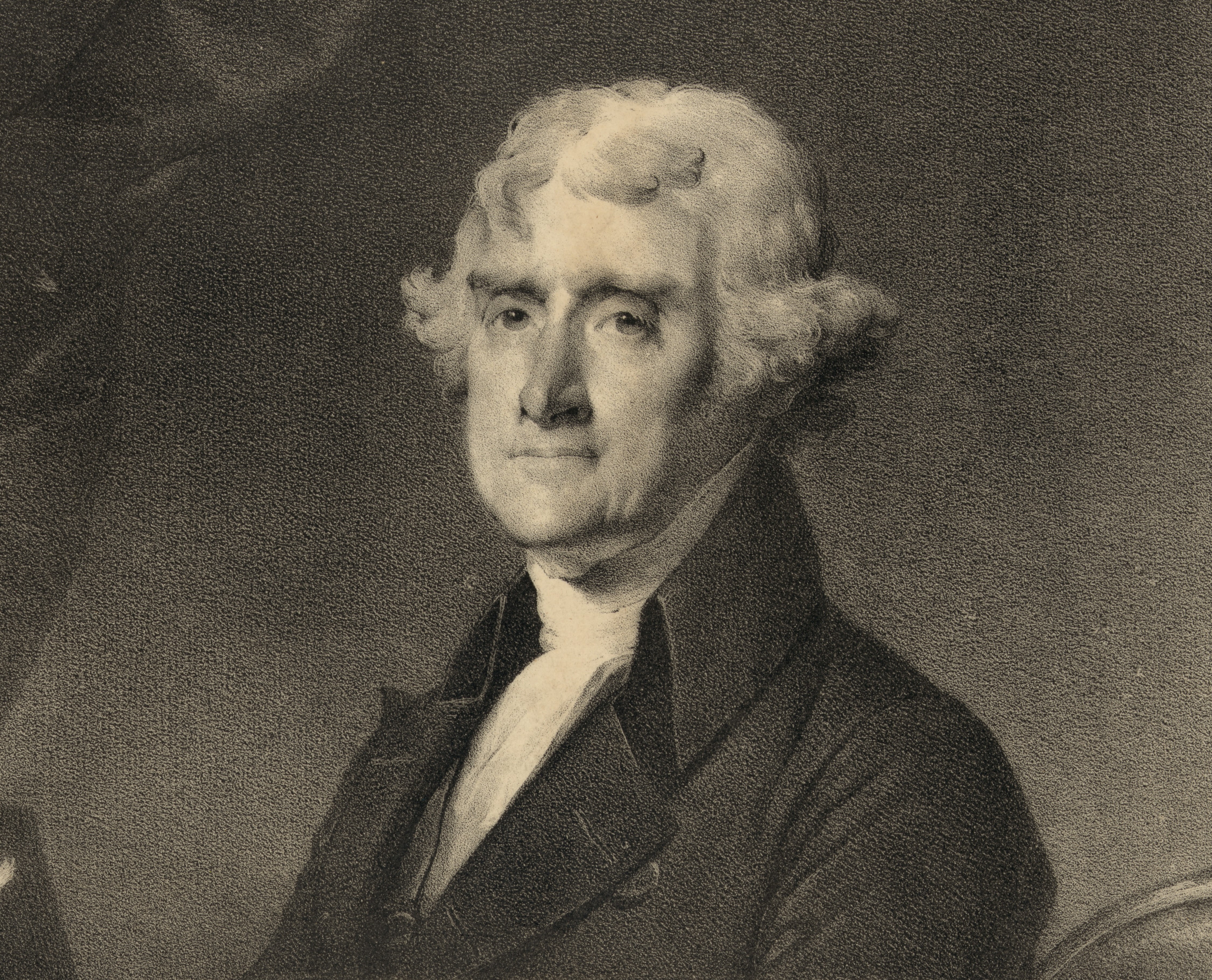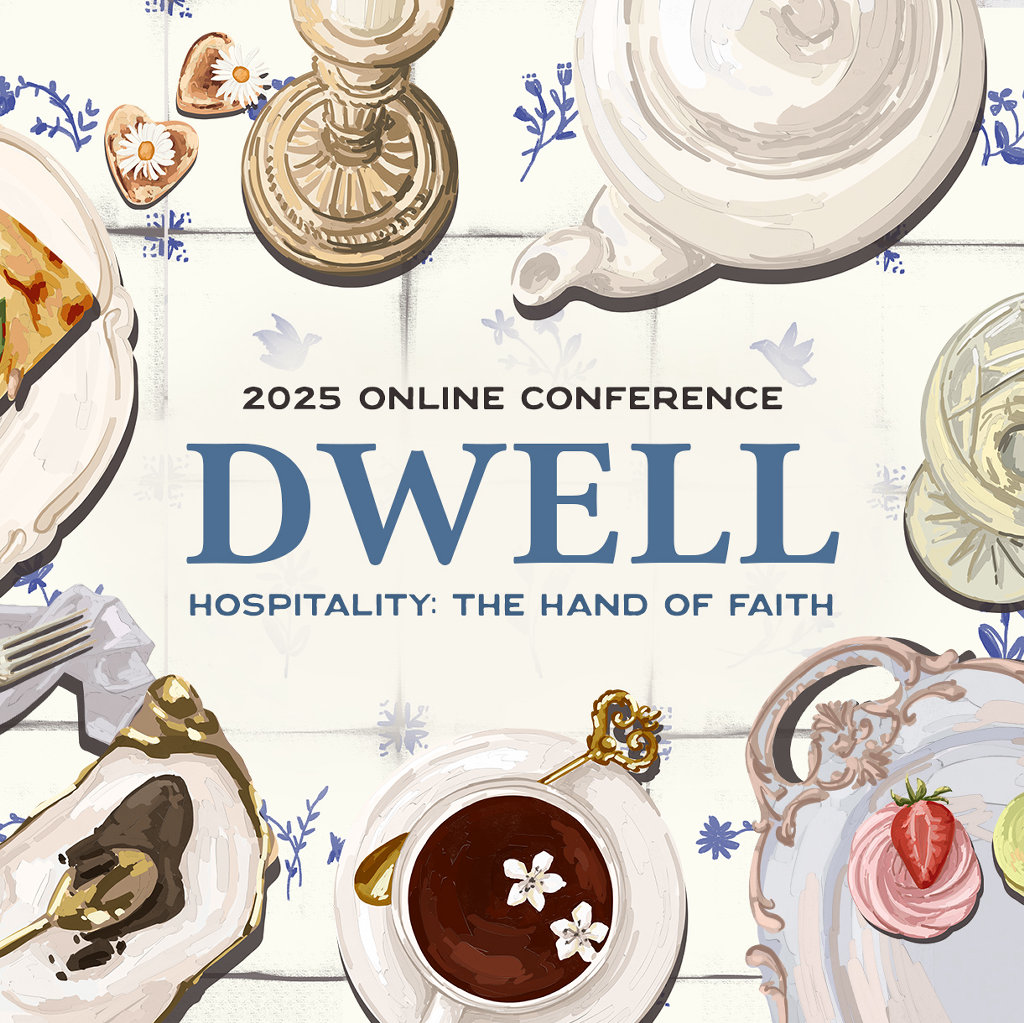Merely Another Biography, A Review of Thomas Jefferson: A Biography of Spirit and Flesh

The following is a review of Thomas Kidd’s book Thomas Jefferson: A Biography of Spirit and Flesh, recently published by Yale University Press.
Whenever I begin a review of a new biography of Thomas Jefferson, the first question I ask concerns the need for a new biography. One expects that the new biographer has combed all the significant extant biographies of Jefferson and found them in some respect wanting. Another justification not independent of the first, is that the new biographer has a particular expertise that has a bearing on understanding the dimensionality of Jefferson: the biographer is a builder, lawyer, gardener, meteorologist, or moralist, and as such, can shed new light on Jefferson which prior biographers have failed to do.
Thomas Kidd’s Thomas Jefferson: A Biography of Spirit and Flesh is a book that seems to promise a biographer of the latter sort. From a professor of Church history at Midwestern Baptist Theological Seminary, one expects an expiscation of Thomas Jefferson as religionist, with a thesis that touches on Jefferson’s religious life along with new disclosures, on the assumption that he has performed critical analysis of the most relevant and significant secondary sources.
While the prose of Thomas Jefferson is intelligent and readable, it disappoints in large ways, and I use “large” euphemistically.
First, Kidd proffers no warrant for undertaking the project. His introduction differs nowise from many other recent books on Jefferson by beginning with Jefferson qua “troubled person,” “virtually unknowable as a man,” a man whose “beliefs vacillated,” and one “abjectly dependent upon enslaved people. [1] Yawn—crambe repetita! With Jefferson acknowledged to be troubled, almost unknowable, confused, and abusive to his slaves, one wonders why it is so vital to craft another book on him, but Kidd does. After his somewhat formulaic introduction—formulaic, inasmuch as it merely follows the postmodernist prescription of most published biographies of Jefferson today—we are given an account of Jefferson’s life that is coherent and readable, but highly pedestrian—and unoriginal. Though Kidd offers numerous critical comments throughout his book, many of which are asides, there is clearly no thread to his prose—no thesis—and so one wonders why he feels the need to write for 240 pages about this “virtually unknowable” figure. It is unfortunate that lack of a thesis today does not seem prohibitive when it comes to scholarly publications.
Second, Kidd makes much use of secondary resources in his endnotes, but there is no critical engagement with that literature in the text. Given his expertise in matters of religious studies, one might expect expiscation of Jefferson’s religious views that goes beyond other books: Charles Sanford’s The Religious Life of Thomas Jefferson, Edwin Gaustad’s Sworn on the Altar of God: A Religious Biography of Thomas Jefferson, Eugene Sheridan’s Jefferson and Religion, Robert Healey’s Jefferson on Religion and Public Education, and my own The Surprisingly Simple Religious Views of Thomas Jefferson and Thomas Jefferson’s Bible, With Introduction and Critical Commentary. Of those essential books, none is critically discussed. What is worse is that Kidd is the first biographer of Jefferson who completes his book without in-text references to the great Thomas Jefferson Foundation scholars Dumas Malone and Merrill Peterson! Even if his focus is Jefferson as a religionist, there is much meaty material in the works of Malone and Peterson that Kidd overpasses. Moreover, central religious issues, like the possibility of Jefferson as a moral atheist or Jefferson on the hereafter, I have settled cogently in my book on Jefferson and religion, but Kidd apparently has not read that book and so he offers no solutions to those problems. [2] I find it incredible that a book that fails to engage critically with the essential materials concerning Jefferson qua religionist could find a publisher, let alone an established university press like Yale.
When mulling through the book, it becomes apparent that it is merely another biography of Thomas Jefferson, crafted like the book written by Jon Meacham—from reading other biographies (and not from primary sources), but with religious anecdotes sprinkled in there and here. I cite two instances.
When discussing the end of Jefferson’s tenure as governor in June 1781, Kidd relates that Benjamin Harrison was concerned about Virginia’s “distressed condition,” as the British were then pressing the war in Virginia and the state was left without a governor. Kidd then, for some reason, offers a few denigratory sentences concerning Harrison as “religious skeptic.” Harrison was “Obscene, profane, impious, perpetually ridiculing the Bible, calling it the Worst Book in the World.” (Here he quotes from Adams). Kidd then adds that “Harrison turned his prickly disposition against the fleeing former governor,” insofar as the quotes he cites from Harrison: “We have now no Executive in the State,” and “for want of a Senate the governor will act no more, and the remainder of the council will not get together. I hope that we shall set these matters right next week.” [3] What Harrison says about Virginia’s lack of government at the time is merely spot on, not “prickly,” or vitriolic. It is unclear what work this anecdote does in the text. Is Kidd’s sentiment that Harrison’s views on this (or any) subject ought not to be trusted because he is anti-biblical?
Moreover, Kidd notes that there were a large number of pictures in Monticello with Biblical themes. He adds, “There is no reason to assume that Jefferson attached devotional significance to these paintings,” and then leaves readers in puzzlement. [4] In Thomas Jefferson in Paris, I explain that all religious artworks of Thomas Jefferson likely had political significance: e.g., Salome bearing the head of John the Baptist was meant to be a lesson vis-à-vis the horrors of lack of freedom of speech. [5]
There are also numerous false claims in Thomas Jefferson. Kidd speaks of Jefferson’s supposed hostility toward David Hume and loathing of Patrick Henry. [6] While Jefferson warned of Hume’s seductive Tory slant in his History of England—an assessment based on Jefferson’s serious misreading of Hume—he in general thought highly of Hume’s political writings and often recommended them in lists of recommended books. [7] While Jefferson thought little of Henry’s erudition, he was clear that Henry’s pro-revolution heart was rightly intended [8] and that he was one of the key figures in the success of the American Revolution. [9] Kidd also writes of Franklin’s “collaboration” with Jefferson on the Declaration. That Franklin, with Adams, read through the first draft of the document and suggested cosmetic alterations is scarcely collaboration. [10] Furthermore, Kidd categorizes “moral philosophy” as a religious subject when discussing Jefferson’s changes to the curriculum of William and Mary College. [11] It was not. Kidd speaks of Jefferson being “satisfied” when he was cleared of misconduct as governor of Virginia. Jefferson, however, said that he would suffer the wound to the “all-healing grave,” [12] and that is scarcely evidence of satisfaction. Finally (and I could go on), Kidd writes of Hamilton’s grief concerning a split in the union due to failure to settle the states’ debts from the Revolutionary War. [13] Hamilton’s overall aim, as Jefferson would later discover, was more sinister: a strong centralized government, fixed on a national bank and a national debt.
Moreover, Kidd often aims to make much of little. There is the astonishing and vacuous (because it is obvious to all persons!) claim that experience and the Bible taught Jefferson that “most people” and “most political deals … were imperfect.” [14] How Jefferson used the Bible to learn that lesson is unstated. Again, Kidd says, “Jefferson laboriously acquired, recoded, and consumed the European wines he and his guests liked best” [15] and Kidd writes tirelessly throughout the book of Jefferson’s enormous stock of wines, ever at Monticello. That assertion at least intimates that Jefferson was a heavy drinker; he was not. Kidd makes no mention of Jefferson’s letter to Dr. Vine Utley (21 Mar. 1819) where Jefferson admits to the habit of three glasses of weak wine per day. Readers must keep in mind that water in his day was impure and readily led to diarrhea, from which Jefferson ever suffered, hence the preference for alcoholic beverages throughout the day. Then there is Kidd’s assertion that Jefferson “resonated” with what has today come to be called Blaise Pascal’s wager Kidd cites Jefferson’s letter to Nicolas Gouin Dufief (3 May 1803) about acquisition of Pascal’s Pensées, but that shows nowise that Jefferson ever seriously entertained Pascal’s argument. Jefferson nowhere ever mentions that argument, which I am sure he would have found paralogous. On another front, Kidd mentions nothing noteworthy of the Louisiana Purchase except that it was “one of his most momentous acts with regard to slavery.” It allowed for the “expansion of American’s ‘empire for liberty’ for white planters—and slavery for African Americans.” [16] The suggestion, given the wording, is that racism was the motivation for the purchase, and that is absurd, because it is presentist, but claims of racism today sell books.
Finally, Kidd makes it a point of referencing Jefferson’s avowed relationship with Sally Hemings throughout his book to underscore his depiction of Jefferson as hypocritical, confused and racist. Kidd says without explanation: “That relationship [with Sally Hemings] may be the most controversial one in American history. The Jefferson-Hemings affair is arguably the central dilemma in Jefferson’s moral universe.” [17] So often in Thomas Jefferson, Kidd repeats uncritically the claims of Gordon-Reed, who has, in his Kidd’s own words, “powerfully analyzed the evidence for that relationship,” [18] without his own inspection of the relevant data. Uncritically following Gordon-Reed, Kidd notes: Hemings stayed with Jefferson, not Maria [Jefferson’s daughter], in Paris; [19] Jefferson considered himself to be “as blessed as the most blessed of the patriarchs;” [20] Hemings refused to return from Paris to Virginia unless Jefferson promised that her children would be freed at twenty-one years of age; [21] Hemings likely “visited Jefferson in Washington periodically;” [22] James Callender was a rogue, but his report of Jefferson’s affair with slave Hemings was “correctly reported;” [23] and Jefferson’s affair with Hemings is difficult to grasp given his claim that admixture of white and black blood leads to degradation in the offspring. [24]
Kidd is clearly unaware that inspection of the relevant data poorly supports an affair with Sally Hemings. Gordon-Reed’s work, I have shown in several publications, is riddled with speculative claims, and her narrative concerning their relationship is crafted on the flimsiest of evidence. [25] It does not seem strange to him that a “secret” relationship that bore six children could occur over some forty years without anyone ever witnessing any intimacy between the two, and that itself is strange. He also references only two works that contradict the pro-paternity thesis in a footnote (261n39). It is apparent that he has not given any independent thought to the matter. Because of uncritical reliance on Gordon-Reed’s work, we are swamped with nodi that would evanesce upon acknowledging that there never was an affair. The “central dilemma” disappears and so too do many of the other oddities appertaining to Jefferson.
In sum, there is nothing original in Kidd’s book, so it is of limited value to Jeffersonian scholars. Yet we cannot be too hard on Kidd, since at least he made no promise to readers about any new disclosure concerning Jefferson, and on that, he delivers!
1. Thomas Kidd, Thomas Jefferson: A Biography of Spirit and Flesh (New Haven: Yale University Press, 2022), 2-4.
2. M. Andrew Holowchak, The Surprisingly Simple Religious Views of Thomas Jefferson (Abilene: Abilene Christian University Press, 2020).
3. M. Andrew Holowchak, The Surprisingly Simple Religious Views of Thomas Jefferson (Abilene: Abilene Christian University Press, 2020).
4. Thomas Kidd, Thomas Jefferson, 187.
5. M. Andrew Holowchak, Thomas Jefferson in Paris: The Ministry of a Virginian “Looker-on” (Wilmington, DE: Vernon Press, 2022), 170-73
6. Thomas Kidd, Thomas Jefferson, 19-22
7. M. Andrew Holowchak, “Thomas Jefferson’s Bizarre Fear of Monarchism, and of Hume: Why Hume Was Much More ‘Liberal’ than Jefferson,” History News Network, https://historynewsnetwork.org/article/170193.
8. Thomas Jefferson to Wiliam Wirt, September 4, 1816.
9. M. Andrew Holowchak, Thirty-Six Short Essays on the Probing Mind of Thomas Jefferson: “A Sentimental Traveler” (Newcastle upon Tyne: Cambridge Scholars, 2020), chap. 2.
10. Thomas Kidd, Thomas Jefferson, 37.
11. Thomas Kidd, Thomas Jefferson, 67.
12. Thomas Jefferson to James Monroe, May 20, 1782.
13. Thomas Kidd, Thomas Jefferson, 113.
14. Thomas Kidd, Thomas Jefferson, 188.
15. Thomas Kidd, Thomas Jefferson, 153.
16. Thomas Kidd, Thomas Jefferson, 193.
17. Thomas Kidd, Thomas Jefferson, 89.
18. Thomas Kidd, Thomas Jefferson, 3.
19. Thomas Kidd, Thomas Jefferson,104.
20. Thomas Kidd, Thomas Jefferson, 105.
21. Thomas Kidd, Thomas Jefferson, 109.
22. Thomas Kidd, Thomas Jefferson, 152.
23. Thomas Kidd, Thomas Jefferson, 163.
24. Thomas Kidd, Thomas Jefferson, 195.
25. E.g., M. Andrew Holowchak, Did Thomas Jefferson Really Father Sally Heming’s Black Children? A Scholarly Analysis of the Historical and Genetic Evidence (Lewiston, NY: Edwin Mellen, 2021), and Framing a Legend: Exposing the Distorted History of Thomas Jefferson and Sally Hemings (Lanham, MD: Prometheus, 2013).
M. Andrew Holowchak
M. Andrew Holowchak, Ph.D., is a professor of philosophy and history, who taught at institutions such as University of Pittsburgh, University of Michigan, and Rutgers University, Camden. He is author/editor of over 65 books and over 300 published essays on topics such as ethics, ancient philosophy, science, psychoanalysis, and critical thinking. His current research is on Thomas Jefferson—he is acknowledged by many scholars to be the world’s foremost authority—and has published over 200 essays, formal and informal, and 27 books on Jefferson. He also has numerous videos and a weekly series with Donna Vitak, titled “One Work, Five Questions” and “The Real Thomas Jefferson” on Jefferson on YouTube. He can be reached at mholowchak@hotmail.com.








